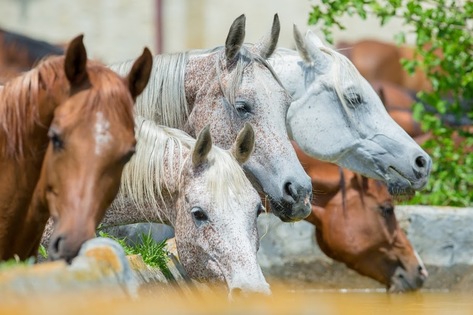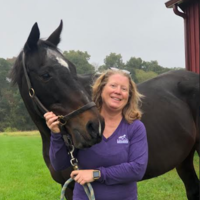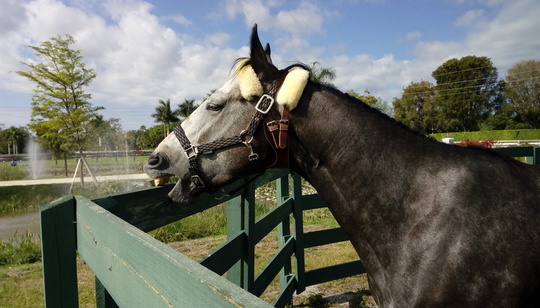
The Most Popular Horse Breeds Of 2019
Equestrian Advice & Guides General Equestrian
Build your business profile for FREE and expose your services to thousands of potential clients!
Create my profile now!
When I discovered that my new horse, a rescue, was a cribber, I was disheartened at first. The stereotype of cribbing usually starts early in a horse’s life. It causes the animal to literally suck in wind as s/he chews or bites on something such as a ledge in a stall or a fence post or rail. Horses begin to crib due to natural proclivity, lack of forage, company, or enough movement in early life, and the habit stays forever. My concern was that this poor horse who was already underweight, neglected, and in poor condition, had yet one more thing to worry about in his journey to a happy, healthy, normal equine retirement life.
The vet’s main concern is colic, as horses who crib are more likely to suffer from some types of colic. But there is another way to look at cribbing, which, at the end of the day, is a coping mechanism to manage with the challenges aforementioned. What creature on this earth does not need strategies to cope with the challenges of life and the environment in which we live? Horses who crib need to, and they are wired to do just that. They also have higher levels of perseverance than other horses.
Cribbing is not transferable to other horses, so other animals in the barn or pasture will not start to crib just because one or more horses may. As long as there is no property damage, there is less to worry about, and cribbing does not affect performance or other behaviors. Many successful high-level horses in many disciplines crib, and perhaps, that is what makes them able to handle some of the challenges.
Thus, I have decided not to be overly concerned. In any case, cribbing collars may help some of the time, but as soon as they are removed, a cribber will start to crib. This rescue horse is gaining weight, finding his health, and if he needed a way to cope with earlier life, I am glad he had that stereotype to get through. As a senior horse, he won’t stop cribbing, but at least, when he needs it, he has a way to relax, and the memory will always remain.

